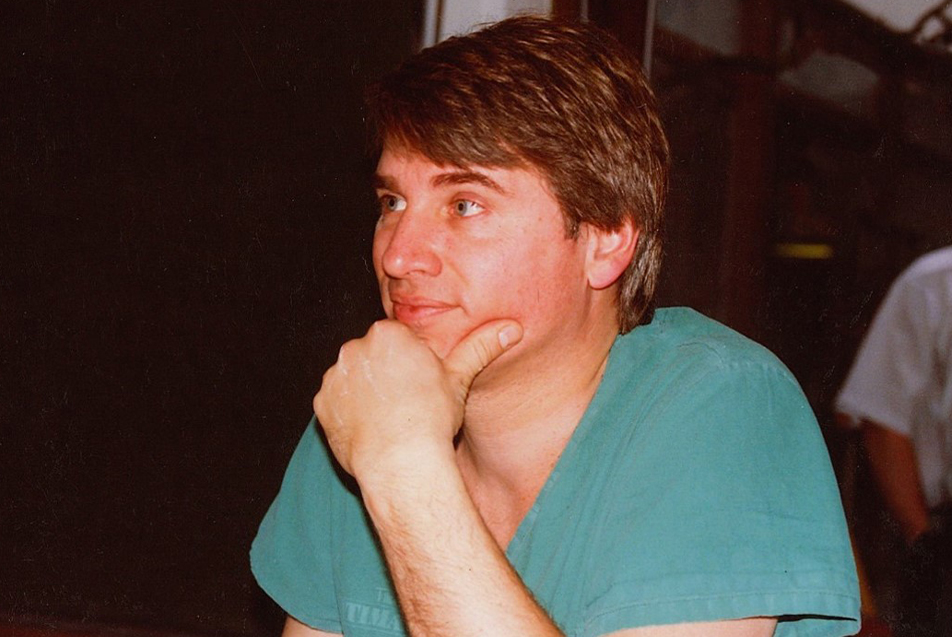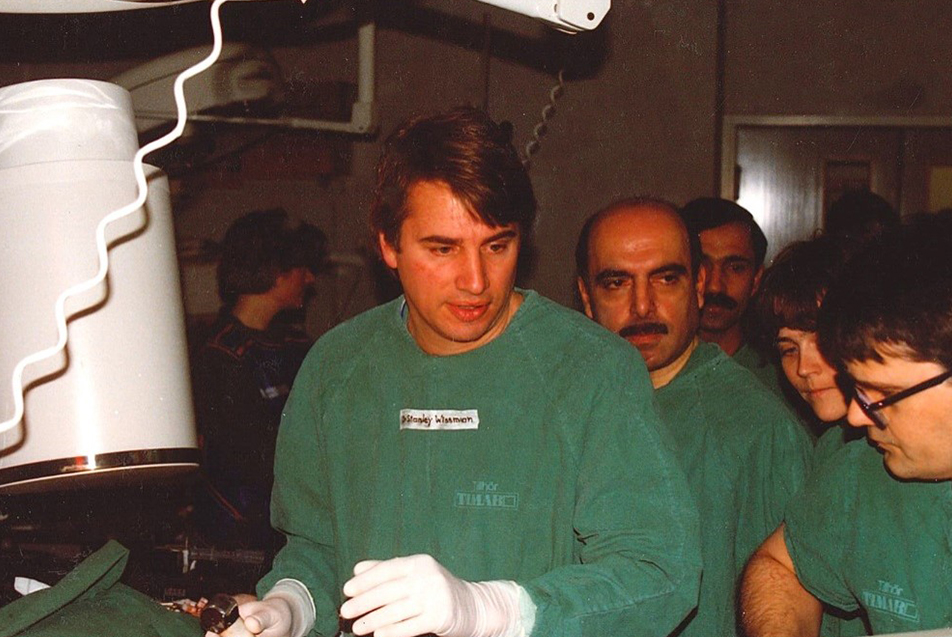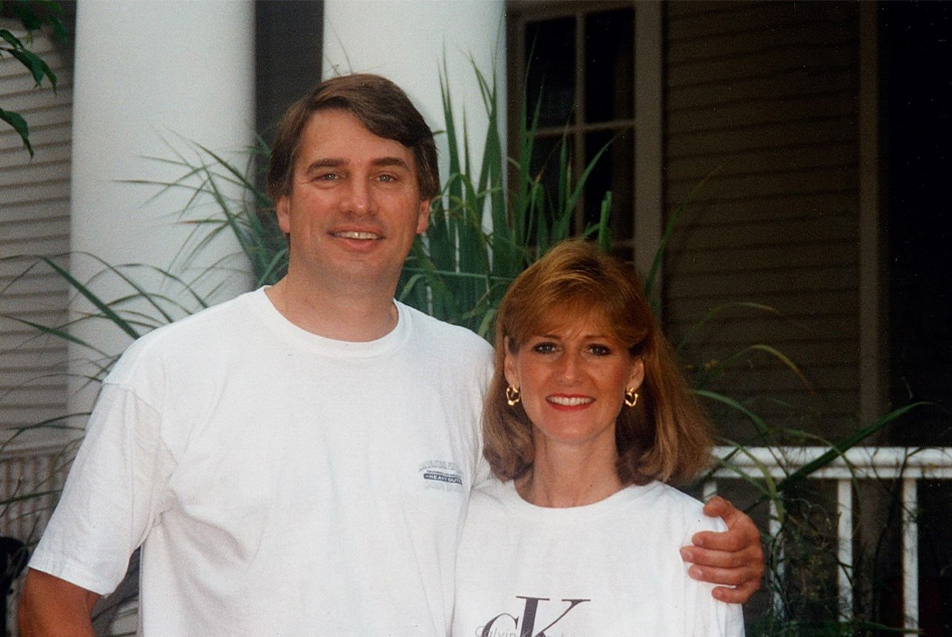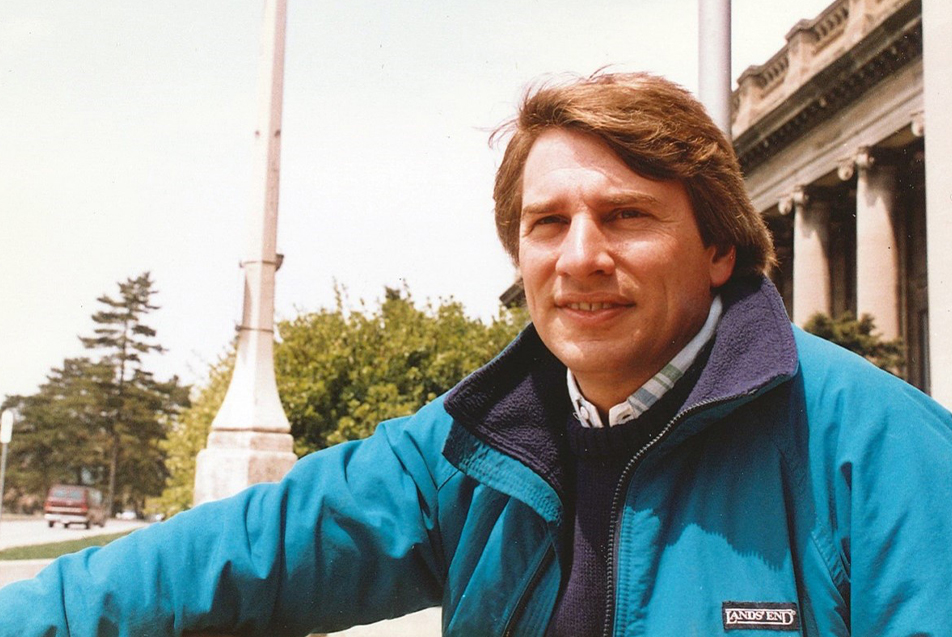
This post, written by Gina Bailey and Fen-Lei Chang, M.D., Ph.D., originally appeared in Fort Wayne Medicine Quarterly.
This year marks the 20th anniversary of the death of one of Fort Wayne’s most beloved neurologists, Dr. Stanley Wissman. While his career and time with family and friends were cut short, Dr. Wissman left a lasting legacy in our community that has inspired many healthcare professionals. His devotion to patient care, education and research inspired the establishment of the Parkview Stanley Wissman Stroke Center and the Stanley Wissman Symposium.
As a Fort Wayne native, Dr. Wissman was always an advocate for our community. While an intern at Indiana University School of Medicine in Indianapolis, he met a resident by the name of Dr. C. Joe Ottinger. Dr. Ottinger was looking at potential communities for practice after residency. Dr. Wissman easily convinced Dr. Ottinger to choose Fort Wayne. Dr. Ottinger describes his friend and colleague with a fond memory, “As a physician, Stan was ambitious and innovative. As a friend and colleague, he was a down- to-earth great guy.”
Dr. Patrick Daley, a cardiologist at PPG – Cardiology, describes a physician who was pleasant, interesting, and gifted. He remembered an episode in the Emergency Department that demonstrated Dr. Wissman’s remarkable clinical skills. “About 25 years ago on a weekend in the busiest emergency room in the city, at a time before hospitalists or call nurses existed, Stan diagnosed an abdominal aortic aneurysm before the patient had imaging. I don’t know what prompted a physician to consult Stan, a neurologist, but it was not obvious that the patient had an abdominal aortic aneurysm. The only way he diagnosed it was through careful history and physical exam, and thoughtful deliberation.”

Throughout his practice as a neurologist, Dr. Wissman was known for his kindness and listening skills. Physicians and staff at Fort Wayne Neurological Center found his dedication inspiring. “Dr. Wissman was a great physician, a wonderful people person and my boss/employer for many years. He always put others before himself. He amazed me by his commitment to his family and to his patients, giving them the best care ever. He made everyone, no matter who or what walk of life, feel important and appreciated. I learned so much about neurology from him, but even more about self-sacrifice, humility and living life to the fullest. I am honored to have been his nurse,” said Monti Horne, RN.
Carma Conrad, RN, also agreed with these sentiments, stating, “Dr. Wissman was a kind, caring, compassionate, intelligent, and dedicated physician with a heart-warming smile and laugh. He was also a visionary in the medical field and was devoted to the medical profession. He was genuinely interested in everyone he met. It did not make a difference if you were the CEO of the company or the janitor, he treated each with the same dignity and respect. It was truly an honor to work for him!”
In addition to caring for patients, Dr. Wissman’s compassionate nature drove his interests in the discovery of innovative ways to prevent and treat strokes. Through his pursuit to improve stroke outcomes, Dr. Wissman, along with his research nurse and wife Mary Ann, and Rob Plant, PharmD, established the clinical trial of tis- sue plasminogen activator (tPA) at Parkview Hospital in 1994. “Dr. Wissman pioneered stroke research in our community. The participation in this pivotal trial for the use of tPA in the treatment of acute ischemic stroke led the way for the use of this drug treatment in Fort Wayne and across the nation. The tPA trial was the first of many research efforts that Dr. Wissman led at Parkview Research Center,” said Rob Plant, PharmD.

Mary Ann Wissman was able to share in her husband’s career at Parkview. She states, “As Stan’s wife and clinical research nurse, we had the privilege of sharing our loving husband/wife life together and our extraordinary professional experiences 24/7. It was such an honor and so exciting to work together, especially at the forefront of significant research that generated new innovative treatment breakthroughs for stroke patients. Stan was a very loving husband, father, son and brother and was very devoted to our family. He also cared deeply about our friends and all of his patients. Stan was an exceptional man. He was compassionate, generous, kind and intelligent with a very beautiful spirit, a contagious smile and a great sense of humor. The Parkview Stanley Wissman Stroke Center is an enduring legacy to his life’s work.”
“Stan was a visionary clinician and research scientist and neurologist. He was very dedicated to advancing patient care; therefore, he served as one of the national thought leaders to lead the clinical investigation of tPA for stroke. This created a transformation in care of stroke worldwide,” said Dr. Michael Mirro, Chief Academic Officer at Parkview Health.

Dr. Frank Byrne, the president of Parkview Hospital at the time of Dr. Wissman’s death, established the Stanley Wissman Stroke Center to honor his legacy. “It was truly fitting that we named the Stroke Center at Parkview after Stan. He was a national leader in, and passionate about, advancing care for stroke patients.
He was one of the named authors in the groundbreaking study showing that the clot-busting drug tPA could help stroke patients and improve their outcomes. Most people in Fort Wayne were unaware of Stan’s national reputation because of his humility,” said Dr. Byrne. The mission of the center is to continue the work of Dr. Wissman by delivering excellent care within the hospital and providing education on the prevention and recognition of the symptoms of stroke throughout our com- munity. Neurologists in our community have continued to pursue innovative treatments for stroke patients. In 2018, the Fort Wayne community reached another mile- stone in stroke care with the establishment of comprehensive stroke centers. “Dr. Wissman would be thrilled to see the advances in interventional treatments for stroke,” said Dr. Ottinger.



